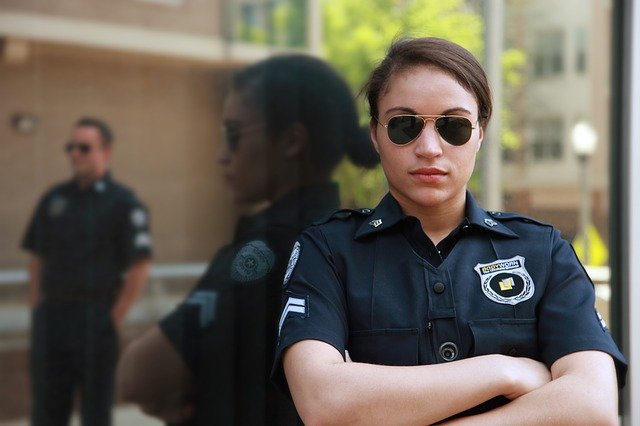Dealing With Missouri Police Officers
Police officers are the public face of the police departments in Missouri. Each officer must exhibit a positive and professional image while effectively serving the community’s interests. Knowing what to expect concerning policing policies, investigation procedures, services, and resources can help Missouri citizens engage with law enforcement officers. This guide is presented by the Benjamin Law Firm, LLC in Kansas City, MO.
Missouri Police System and Practices
During the course of their duties, police officers may ask to speak with you. There could be many reasons for this. They may:
- Stop you for a traffic violation
- Need important information from you as a possible witness to crimes
- Stop you because they have reason to believe you were or are involved in a crime, and place you under arrest
- Detain you to determine if you were involved in a crime that occurred
- Have a search warrant or probable cause to search you, your home, or your vehicle for specific items listed on the warrant
Attitudes and Actions Can Influence How a Police Officer Reacts
Regardless of why a police officer wants to speak with you, always treat the officer the way you want to be treated. Be respectful, calm, and cooperate. Yelling, failing to follow directions, or resisting arrest could lead to more charges, serious injury, or death. Do not lie to an officer, make sudden movements, or reach for anything. The officer may think you are hiding something or have a weapon, which will cause them to defensive action, such as drawing a gun.
If you feel the officer is disrespectful or has done something wrong, you can submit a complaint with the Kansas City, MO, Office of Community Complaints later or consult lawyers in Kansas City.
Arrest Practices
Police officers are granted arrest warrants by the court and are expected to take anyone listed on the warrant into custody. Whether you are guilty or not, don’t resist arrest. Once you arrive at the police station and are booked, you can call a lawyer and another person.
If you are arrested and charged with a crime, you will need an experienced criminal defense lawyer to represent you and provide legal guidance.
Search and Seizure Practices
All searches and seizures of private property are conducted under a warrant for a specific property at specific times. Officers are justified in staying on the premises to perform a proper search. Officers must provide you with a copy of the search warrant and a list of any items taken.
Police Response Practices to Domestic Violence in Missouri
When a law enforcement officer responds to an incident involving family violence, the officer will verify the welfare and safety of all family members and children in the home. The police officer will evaluate each complaint separately to attempt to determine the dominant aggressor based on:
- A history of family violence by either party
- The severity of the injuries inflicted on each person
- Threats made to create the fear of physical injury
- The potential for future injury
- Whether one of the parties acted in self-defense or in defense of a third party
- Whether either party had reasonable cause to believe they were in imminent danger
The police officer will make an arrest if a felony has been committed and probable cause exists. Suppose no legal grounds for an arrest exists. In that case, the officer will advise the victim on how to obtain a warrant and remove the victim and children if there is a high probability of continued violence.
When Are Law Enforcement Officers Required to Read Miranda Rights to a Person Under Arrest?
Persons taken into custody must be advised of their rights if asked about their involvement in a crime before being questioned by an officer. As stated in the police handbook, police employees must inform you of the following:
- You have the right to remain silent
- What you say will be used in court as evidence against you
- You are entitled to have a lawyer present at any time during questioning
- If you cannot afford to pay for a lawyer, you will be appointed one at no charge
- You may decide to exercise these rights at any time and not answer any questions or make any statements
If you feel you have been coerced into incriminating yourself or your Miranda rights have been violated, ensure that you have an experienced trial lawyer on your side to fight to get the confession suppressed or thrown out.

Police Practices and Community Relations in Missouri
Improving police effectiveness and public safety can be achieved by increasing police-community trust and preventing crime instead of reacting to it. Missouri Police chiefs and departments are working to reduce the overall level of violence by directly engaging the community. Educating and building relationships with susceptible youth and training employers, churches, and community groups to recognize and report abuse or criminal activity will result in safer communities.
When Should Someone Seek the Advice of a Criminal Defense Lawyer?
When you feel your rights have been violated or you have been arrested and charged with a crime, speak to criminal defense specialists that understand Missouri law.
Our practice areas cover a broad range of criminal, traffic, and DUI offenses. You can rely on us to hear your side of the story, explain your options, develop a strong defense strategy and fight tirelessly for you.

Frequently Asked Questions
What is the Police Department’s Policy on the Use of Force?
Missouri Police recognize and respect the value of human life and the right of people to be secure in their persons and property. They are prohibited from the unnecessary or unreasonable use of force against any person or property. In all interactions, officers should strive to employ de-escalation techniques taught by the training academy to utilize the least amount of force necessary.
Do You Have to Tell the Police Where You Are Going in Missouri?
The U.S. Constitution grants every citizen the right to remain silent, even when the police have pulled you over for questioning. If you are uncomfortable speaking with the police, explain to the officer that you are invoking your 5th amendment rights and ask to speak with an attorney.
If you do not feel comfortable talking to the police, tell the officer you are standing on your 5th amendment rights and request to speak with one of the many lawyers in Kansas City.
















